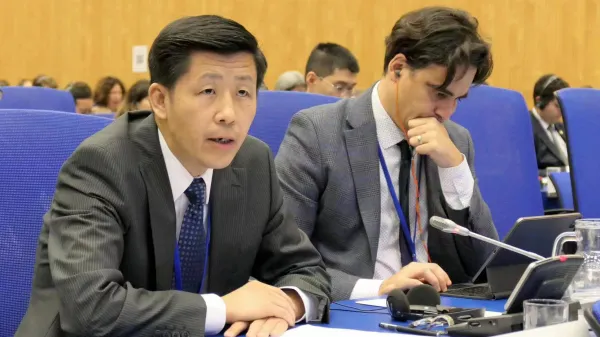China’s semi-official Global Times published an “Opinion” by its Editorial Board on Oct. 13, which put squarely on the table the failure of the post-World War II world order and called for the creation of a “new paradigm” in international relations. The article began by referencing the Oct. 10 speech by Sun Xiaobo, director-general of the Department of Arms Control of the Foreign Ministry of China, who called for “a world free of nuclear weapons” during a speech to a UN committee on Disarmament and International Security Thursday.
Global Times’ response starts off: “The post-World War II international order, including the nuclear deterrence strategy of the Cold War, has not adequately addressed the fundamental issues surrounding nuclear weapons. While the concept of mutually assured destruction may have prevented direct conflict between nuclear powers, it has kept the world living under a constant shadow of the nuclear threat.”
The editorial board authors reference the shifting global dynamics that, for example, have seen NATO play a larger role in Asia. “The root causes of war and nuclear proliferation are complex and multifaceted,” they write. “They stem not just from the weapons themselves, but from deep-seated geopolitical tensions and historical grievances. To effectively address these issues, we need a nuanced understanding of global security dynamics that goes beyond simplistic ‘us versus them’ narratives.” They point out that “existing security mechanisms failed to effectively prevent the threat of nuclear war.”
“To break this cycle, we need a paradigm shift in the approach to global security,” Global Times asserts. “Merely discussing the destructive consequences of nuclear war is clearly not enough.… Instead, we must strive for a standard, comprehensive, cooperative and sustainable security concept. This approach recognizes that in an interconnected world, the security of one nation is inextricably linked to the security of all.”
The op-ed concludes: “By fostering understanding, promoting cooperation and addressing the root causes of conflict, we can work toward a world free from the shadow of the nuclear threat—a human community with a shared future where security is achieved through collective commitment to peace.”




